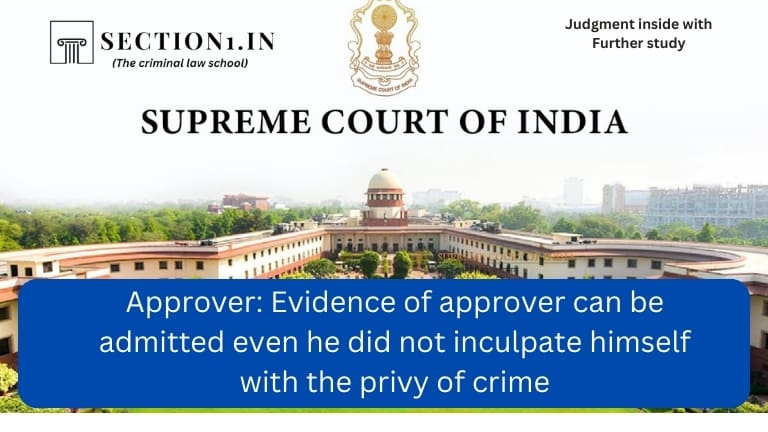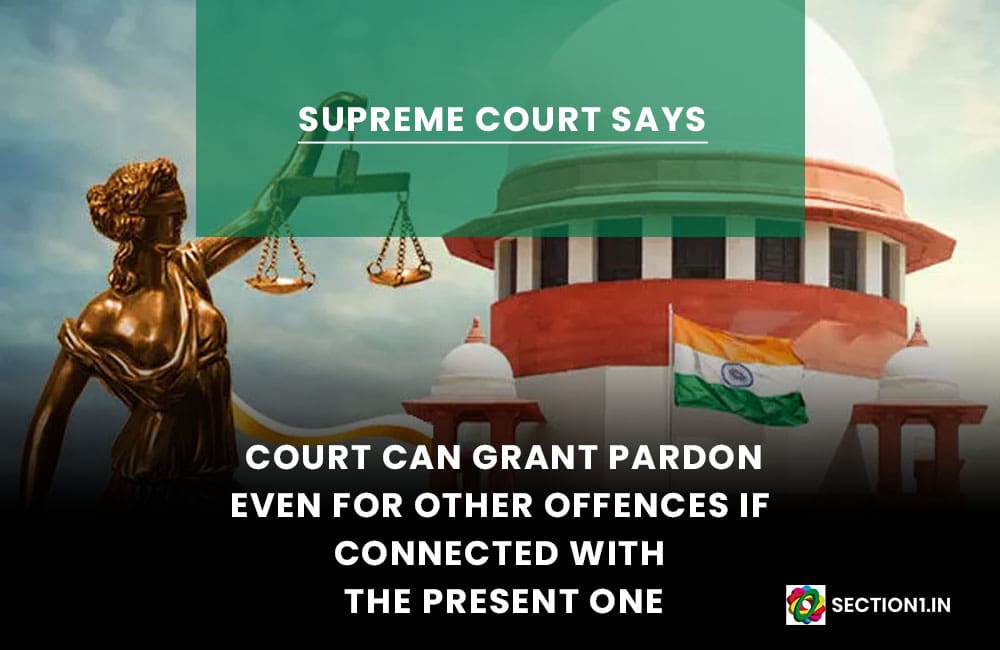Appreciation of approver: Only general corroboration is required
40. The evidence of an approver requires corroboration and therefore, this Court looked out for corroborative materials. In this regard, it is not necessary that the approver’s evidence should be corroborated minutely on every aspect. What was required is general corroboration. The Supreme Court in Narayan Chetanram Chaudhary and Another Vs. State of Maharashtra [AIR 2000 SC 3352], has held that the Court must look at the broad spectrum of the approver’s version and see whether it is generally corroborated. In State of Rajasthan Vs. Talevar and Another [AIR 2011 SC 2271 ], the Supreme Court has very clearly held that corroboration is a rule of prudence and it is not necessary that every fact stated by the approver in his evidence needs to be corroborated. What has to be seen is whether the story of the accomplice is true and is reasonably safe to be acted upon.
Judicial confession is a substantive evidence if the maker arrayed as accused
43. The learned counsels for the defence strenuously attacked the judicial confession that was given by the approver before the Magistrate. They contended that the Magistrate did not ascertain from the approver whether he was giving the confession voluntarily. I am unable to agree with this submission because, the confession of the approver that is given prior to the tender of pardon is not a substantive piece of evidence. A judicial confession is a substantive piece of evidence only against the maker if he has been arrayed as an accused. When once tender of pardon is given to a person, he becomes a witness for the prosecution and only his evidence in the open Court during trial is substantive evidence and not the confession. The judicial confession becomes a previous statement which can be used to corroborate or contradict the witness whilst he is in the witness box. In this case, the confession of P.W. 1 was recorded by the Magistrate on 07.05.1991. He was given tender of pardon by the competent Court subsequently on 05.12.1991. He was examined as a witness in the trial court nearly after eight years on 02.10.1999. He did not turn hostile to the prosecution case and supported the prosecution case by identifying the accused, identifying the material object sand describing the role played by each one of the conspirators vividly.
Regarding recovery: Adverse inference against the recovery shall be decided with respect to each case
52. The learned counsel relied upon the judgment of the Supreme Court in the case of State of Rajasthan Vs. Talevar and Another (supra), wherein, in para 19, the Supreme Court has held that no adverse inference can be drawn on the basis of recoveries made by the police on the disclosure statement of the accused, in order to connect them with the commission of the crime. In the same paragraph, the Hon’ble Supreme Court has held that:
“19…………….More so, recovery is either of cash, small things or vehicles which can be passed from one person to another without any difficulty. In such a fact situation, we reach the inescapable conclusion that no presumption can be drawn against the said two Respondent accused under Section 114 Illustration (a) of the Evidence Act. No adverse inference can be drawn on the basis of recoveries made on their disclosure statements to connect them with the commission of the crime.”
53. In this case, the recoveries are not some ordinary articles of common usage, but are idols which were in the possession of the accused. The recovery of the idols should be seen in the background of the evidence of the approver. Therefore, on the facts of this case, the judgment relied upon by the defence will not be of much assistance to the accused.
Party
State by: Inspector of Police, C.B.C.I.D., Idol Theft Prevention Section, Trichy. (Crime No.495/90) vs 1.Jacob – Criminal Appeal No.1024 of 2003 – 26-06-2014.
Further study
- APPROVER CAN BE RELEASED BY INHERENT POWERS u/s 482 Cr.P.C ONLY AND NOT ON REGULAR BAIL WHILE TRIAL IS PENDING
- POCSO – EVIDENTIARY VALUE OF THE VICTIM GIRL
- BIRD’S EYE VIEW ON THE TESTIMONY OF CHILD WITNESS IN CRIMINAL TRIAL
- ALL ABOUT SANCTION AND APPROVER
- Approver: Evidence of approver can be admitted even he did not inculpate himself with the crime





